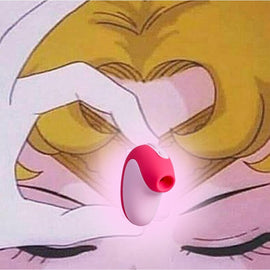Pain With Sex

Unwanted pain with sex is not normal. However, women still report that they think some pain is just part of the sexual bargain. My response is: Nope. No way. Never.
Pain with sex, or dyspareunia, is (unfortunately) very common! In fact, 8-22% of women report pain with intercourse in their lifetime. The wide range in this statistic may be due to the fact that many women don’t report this problem. Because of commonly shared cultural beliefs about how sex should be and feel as a woman, these women can view pain as a normal part of sex, which could deter them from seeking the help they need.
Dyspareunia may present as pain with arousal, initial or deep penetration, and/or pain post-sexual activity. Some women may even report pain with orgasm. There are many women who cannot tolerate any penetration due to the severity of their pain, involuntary muscle contractions, or vaginismus.
Pain with sex can occur for a multitude of reasons like lack of lubrication, an infection, or congenital abnormalities, such as an intact hymen or pelvic floor muscle dysfunction.
Patients with other medical conditions such as endometriosis, fibroids, and irritable bowel syndrome are susceptible. Cancer patients or those undergoing cancer treatment such as radiation or chemotherapy may also experience painful sex. Birth control, environmental factors, and even stress can make sex go from “Give me more” to “Get away!”
So, what can women experiencing dyspareunia do about it?
The cause of the problem may determine its solution. For instance, if the pain is coming from a medical condition such as Polycystic Ovarian Syndrome (PCOS) or fibroids, then treating the illness with medication or surgery may be the answer. Usually, the plan of care for these patients isn’t so cut and dry. Often, the way to treat painful sex involves more than one practitioner due to the fact that several systems may be at play. First, the female pelvis houses the bladder, colon, and uterus. So, right away we have several systems that may be involved, which may warrant the need for different specialists.
Next, the vulva is hormonally mediated. If a woman’s hormones are imbalanced due to illness or as a result of medication, she may experience tissue changes that can cause pain. Just like the gut, the vagina has it’s own flora. These happy bacteria help maintain your pubic area's pH. So, if your flora gets thrown off balance, then you guessed it–pain can occur!
Finally, the pelvic floor muscle that supports your pelvic organs and helps maintain continence can become hypertonic or restricted. This can lead to pain. Imagine if you walked around all day clenching your jaw, you may notice your mouth feels sore or the muscles around your jaw start to feel tense. It may become difficult for you to eat due to jaw pain. The same thing can happen to your pelvic floor! If these muscles are working overtime, they may start to hang out in a tightened state all the time. This can lead to myofascial trigger points (or knots), nerve sensitivity, or overall hypertonicity. So any activity that requires theses muscles (such as sex) will be painful.
If these muscles decide to suddenly contract, like with vaginismus, it can prevent anything from entering the vagina at all. Think The Lord of the Rings with the pelvic floor shouting “Ye shall not pass penis!” For patients with pelvic floor dysfunction, they benefit from working with a pelvic floor physical therapist. A pelvic floor PT may manual therapy to release the restrictions just described, as well as teach an individual how to relax these muscles.

Wait but what about kegels? Don’t they solve everything?
Kegels, like body glitter, have a time and place, but they are not the answer to everything related to sexual health. If the pelvic floor muscles are already in a contracted position, then doing a pelvic floor contraction AKA a kegel, may only add fuel to the fire. Instead, things like child’s pose or meditation may be more appropriate to help your pelvic floor relax. Again, a provider that specializes in pelvic floor rehabilitation would be able to determine what exercises would be appropriate.
Is that all?
No way Jose. This is just the tip! Which reminds me: we didn’t even cover men in this post (yes, men can have pain with sex!). I hope this gives hope to those suffering in silence. Or gave you a fun tidbit that you can use to impress your friends at happy hour. Or at your next Bumble date?
Do you experience pain during sex? After consulting a doctor, here are some products we think may help you out and get you back to fully pleasurable ~sexy times.
1. Jelly

2. Bennies

3. Silver Lube Vial Necklace


Latest Articles

A Hot and Quick Guide to BV, UTIs, and Yeast Infections

9 Acts of Queer Resistance to Know in Addition to the Stonewall Riots








